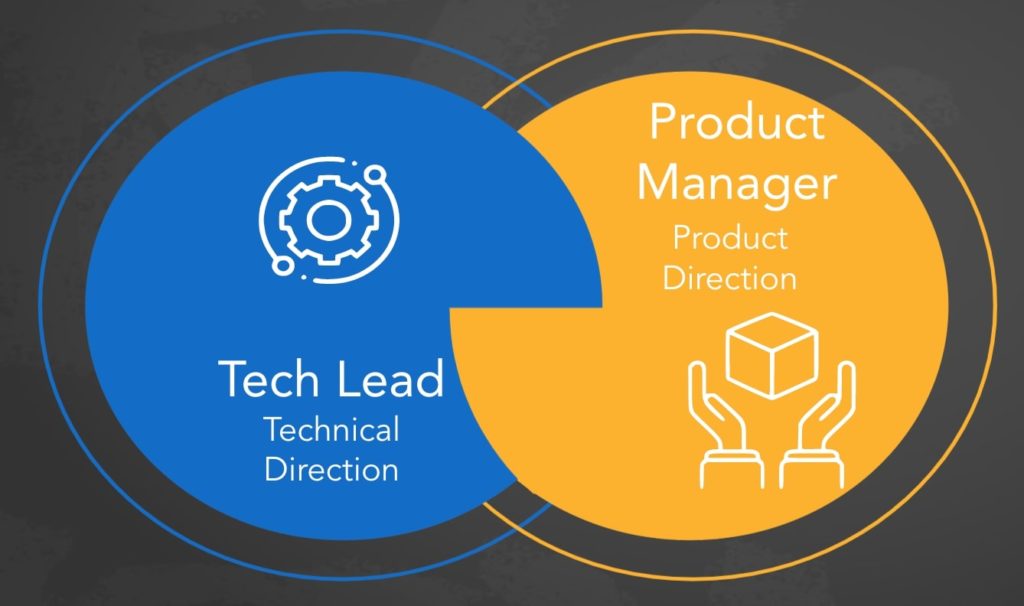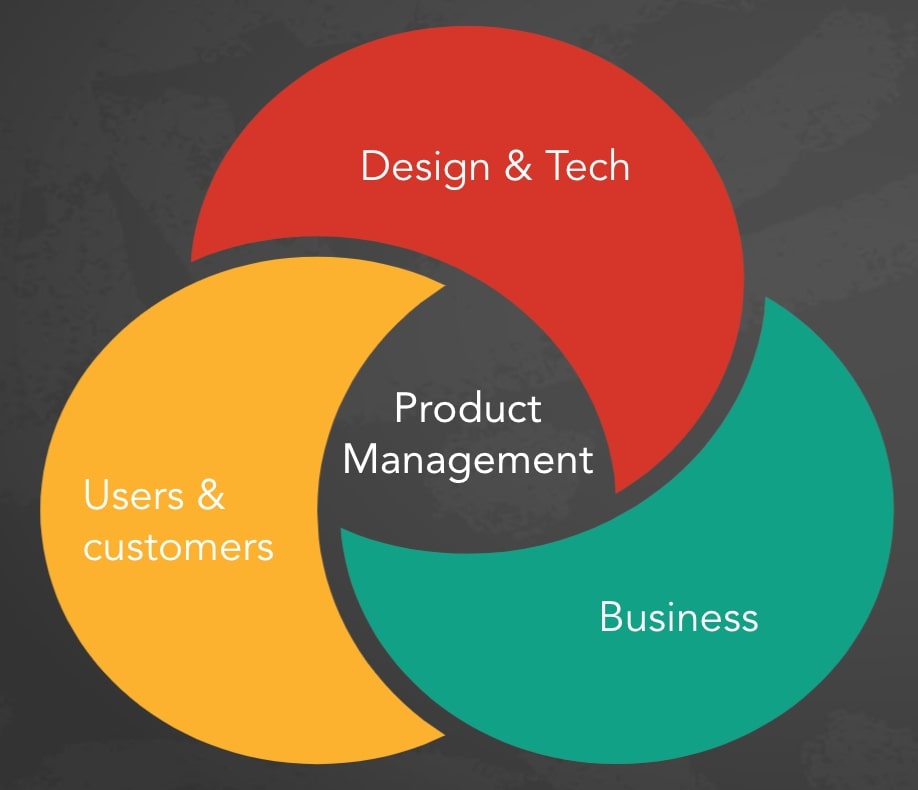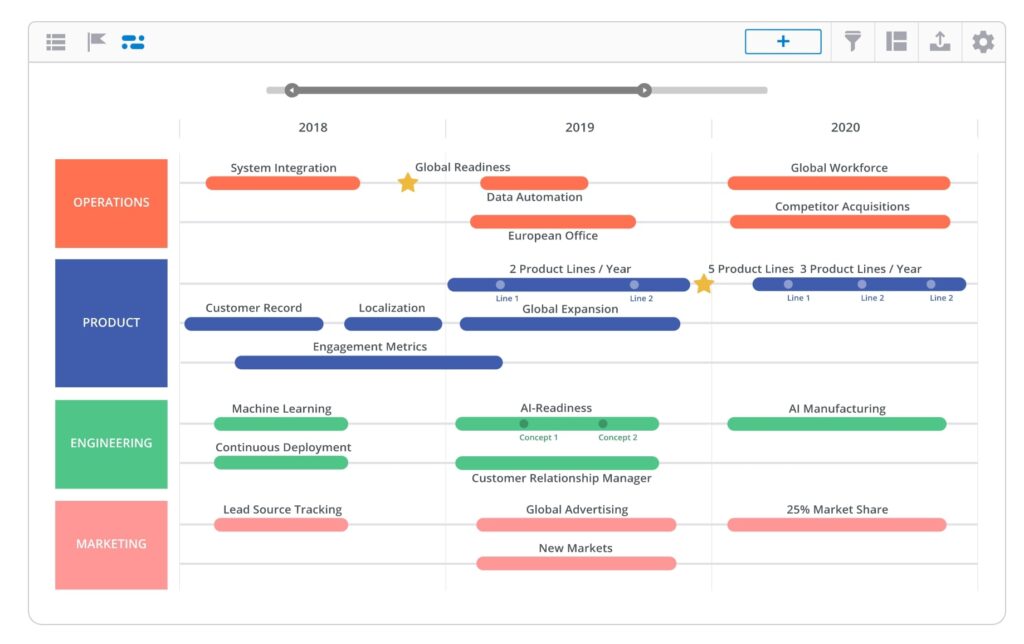API product manager (API PM) is a common role in organizations that integrate software applications.
With the advancement of different software applications and systems, businesses utilize APIs to merge them and expand the impact of digital transformation on their existing digital products. Application Programming Interface (API) is the intermediary that enables communication between those two different systems.
The API product manager is the person who is responsible for ensuring that the underlying APIs, connecting applications, and systems are functioning without any issues to support continuous business operations.
As the demand for API development and usage rises, so too does the demand for API experts and product managers. API offerings include limitless integration capabilities and enhanced business opportunities for the companies that develop and use them.
According to the 280 Group, product managers with the right tools, credentials, and knowledge increase company profits by as much as 28%. Therefore, API product managers oversee their development and gain a smooth integration and end-user experience.
API product managers have several responsibilities. They also require proficiency in APIs and connecting systems, among other things. As experts in the field, a good API product manager also has to look after integration and development projects throughout the lifecycle of an API product.
Steps to become an API Product Manager
There are several steps one needs to follow to become an API product manager. This guide describes those steps and provides tips that will prepare you for your next API product manager role.
Step 1: Get Certified in Technical PM
Obtaining a valid certification for technical PM is the best way to start your journey of becoming an API product manager. You can start by learning courses that provide you with enough technical knowledge on application programming interfaces and the fundamentals of product management.

As an aspiring API product manager, you must have a solid understanding of the technical and managerial sides of your role. When focusing on the technical side, you must understand the following fundamental and specific details of APIs:
- How APIs work
- Latest technological advancements
- API Security
- API performance
- Third-party APIs
- API calls
- Requests and responses
- Payloads
- API Response Error Codes
- REST and SOAP APIs
The above topics help you understand the API design integration architectures, create API documentation, design APIs, and deploy products related to APIs. It is also advantageous to know the complexities of integrating with different platforms and discuss the possible solutions with various stakeholders in the development team in advance.
Having a deeper technical knowledge of managing technical products will also help you communicate with the software engineers and other technical folks on the project. Once developers create APIs, API PMs use that technical knowledge to identify any performance or security gaps in the APIs. Besides, having sufficient knowledge about APIs allows you to manage API products.
The PHQ’s Technical Product Manager Courses help you to improve your technical knowledge of API product management.
Step 2: Learn Fundamentals of Product Management
Apart from technical knowledge, API product managers also need to know the fundamentals of product management.

The managerial side of the job demands you to have sufficient knowledge of key aspects such as:
- Developing a product roadmap
- Leading cross-functional teams
- Handling product security and privacy requirements
As API product managers, you must understand the specific needs of customers and align your business goals to satisfy those needs. This involves learning how to prioritize the requirements of customers and maintaining a backlog of deliverable items.
Another key thing that you must focus on is analyzing market trends to identify how the latest trends can benefit your company. In doing so, you must prepare suggestions to leverage any APIs or related technologies. What’s more, you must identify the business strategies and technologies your competitors use to remain competitive in the market.
You also need to manage multiple teams to become a successful product manager. These teams include:
- End-users of tools
- Providers of tools
- Middle-layer service providers
These parties are crucial when managing an API integration. You must make sure all these teams work together to achieve seamless integration.
Therefore, only having technical knowledge is insufficient to become a successful API product manager. Not having proper leadership and management training, it is difficult to manage API product development.
Follow the PHQ Product Manager Course to improve your managerial side of product management.
Step 3: Get a Thorough Understanding of API Management
Learning the fundamentals of APIs and product management helps manage an API project. However, becoming an API product manager with technical expertise is still not enough. In that case, you have a comprehensive understanding of API management and how to manage APIs in cloud environments.
API management is the procedure that creates, distributes, monitors and analyzes APIs throughout the entire organization and cloud environments. It enables companies to monitor their activity, know the API usage, and develop API strategies to meet customer demands and third-party developers’ requirements. Organizations often carry out API management through a centralized system that controls all your API attributes, such as access control, analytics, and developer workflows.
As API product managers, you need to know and leverage API management strategies for your organizations. For example, you need to have a thorough understanding of API deployments in microservices architectures and how API gateways act as entries for client applications.
Furthermore, defining access control policies for APIs, API monetization, API lifecycle management, and analytics is essential for understanding trends and patterns of API adoption and usage.
Companies are always looking for good API product managers, with a deep understanding of APIs. They hire someone with a mastery of API management strategies. They also need a person who knows how to derive key insights from APIs and develop business strategies to generate revenue through APIs.
Consider enhancing your knowledge and skills in API management by taking online certifications or classes. Doing so sets you on your way to becoming an API Product manager.
Step 4: Gain Formal/Informal Experience in API Projects
One can lay a foundation for becoming a successful API PM by obtaining the necessary knowledge of APIs, product management, and API management. However, gaining sufficient knowledge is not enough if you do not know how to put that knowledge into practice. Therefore, it is imperative to have some hands-on experience to develop the practical side of an API PM.
After grasping the fundamentals of APIs and API product management, your next step is to put what you’ve learned into action. For that, you need to start participating in API development and integration projects to get experience in those processes. As you gain more experience builds more confidence within you as you embark on your career path.
There are a few things you must do to gain that practical knowledge. For example, you can join existing API development and custom integration work projects even if that means taking up a role that isn’t that of an API PM. First, you can work with the API developers or teams involved in API integrations or management.
This collaboration adds valuable experience to your resume and helps you identify the way API projects flow and how API product managers work in those projects. It also helps you understand the role of product managers, and how they manage the API product lifecycle, work with the development teams, and solve problems.
Another method you can follow is working on fictitious API projects. Start by finding different online examples of creating APIs and integrating them into applications. Then, create a product roadmap and simulate the project from an actual product management perspective when you do so.

On top of that, you can develop your skills in managing API products by analyzing market trends, planning the product by setting milestones and dates, defining the Minimum Viable Product (MVP) scope, and implementing an API strategy.
How to Become an API Product Manager With no Experience
The notion that you need to have years of experience to enter into product management is not true.
In some cases, you start by joining an organization as a product manager if you have a specific degree in product management with software development. Otherwise, you have the option of first joining as an API developer and then changing your career path into product management later after gaining the required skills and knowledge on managing API products.
While working towards becoming a product manager, you can build a professional portfolio with your accomplishments and projects that you have worked on. Make sure to add every project that is part of a course focusing on your demonstrable skills.
Furthermore, you can transition into API product management if you have already worked in another specialized area such as data science product management and AI product management. It shows you have experience in managing a product in a different area. You only have to grasp the technical concepts of the work as you already have the required management skills related to the other API product managers field.
Thus, it is not impossible to enter into the API product manager role without prior experience. Your commitment and dedication will decide how fast you can become a successful product manager. Always remember that a solid choice is to first gain API developer experience and then transition towards the product management path by sharpening your managerial, communication, and organizational skills.
How to Prepare Yourself for Your Next API Product Manager Role
If you have succeeded in securing an API PM role, you must ensure you are well-prepared to take up the new role. Follow the steps below to prepare yourself and feel confident for your next API PM role.
1. Stay Up to Date with API Developments
As technologies advance at an alarming rate, API technologies are also subject to change.
Therefore, you must stay up-to-date with what is happening in the API field. Following are some of the key areas you must focus on:
- Any new security threats for APIs
- Latest API documentation models
- Changes and new developments in API mock services and tools
- Cloud computing
- Microservices architectures
- Latest trends in API management
- Integration standards
- Development in API performance
Reading tech articles on APIs, participating in tech forums, and contributing to developer community discussions are a few good ways to keep yourself updated. Besides, you can take up new courses to see what technologies people use nowadays.
2. Develop Soft Skills
Communication skills are among the most important soft skills you need to manage the technical and soft aspects of being an API product manager.
In your role, you have to talk with different internal and external engineering teams, provide your feedback, and guide them into the correct path to launch the end product.
What’s more, persuasive and negotiating skills are must-have soft skills of an API PM as you will have to come to agreements with different teams and API users.
These are some of the key soft skills an API PM must possess:
- Communication
- Strategic Thinking
- Negotiation skills
- Teamwork
- Leadership
- Empathy
3. Develop Emotional Intelligence
Emotional intelligence is a must-have skill as you have to deal with different teams and other stakeholders. It enables you to understand your emotions as well as the feelings and emotions of others. Moreover, it is an important skill when facing stressful and difficult situations during the API product management lifecycle.
Developing emotional intelligence takes a significant amount of time and you’ll build as you experience difficult situations. Whenever there is any doubt about achieving the necessary commitment for the project or feeling under pressure, communicate with your higher management to resolve them as soon as possible and get the help you need.
Emotional intelligence also means having empathy towards others. Whenever you feel that your product team is struggling with something, you can offer suggestions to help resolve them in advance.
Final Remarks
Becoming an API Product Manager is a rewarding journey that bridges the gap between technical expertise and strategic business management. This role needs a strong understanding of both the technical aspects of API development and the market needs. You must focus on building a solid foundation in technical skills, cultivating a deep understanding of customer and developer ecosystems, and honing your strategic thinking and business capabilities.
FAQs
Here are answers to the questions that aspiring API product managers frequently ask:
How can API be managed as a product?
Managing an API as a product involves defining its strategic role, maintaining its lifecycle, and ensuring user support through thorough documentation and robust feedback mechanisms. Performance monitoring and security are also crucial to maintain reliability and compliance. This approach maximizes the API’s value to both users and the business.
How to become an API expert?
To become an API expert, start by mastering the basics of API types and architecture. Practice building and using APIs, and deepen your knowledge by studying detailed documentation and adhering to industry standards. Advance your skills by learning about API security and management techniques. Stay informed about the latest trends and network with other professionals in the field.
What is an API product manager’s salary?
The average salary for API Product Managers ranges from approximately $100,000 to over $140,000 annually. In tech hubs like San Francisco or New York, salaries are higher, sometimes exceeding $160,000.
If you are new to product management and are looking to break into your very first product manager role, we recommend taking our Product Manager Certification Courses, where you will learn the fundamentals of product management, launch your product, and get on the fast track toward landing your first product job.
